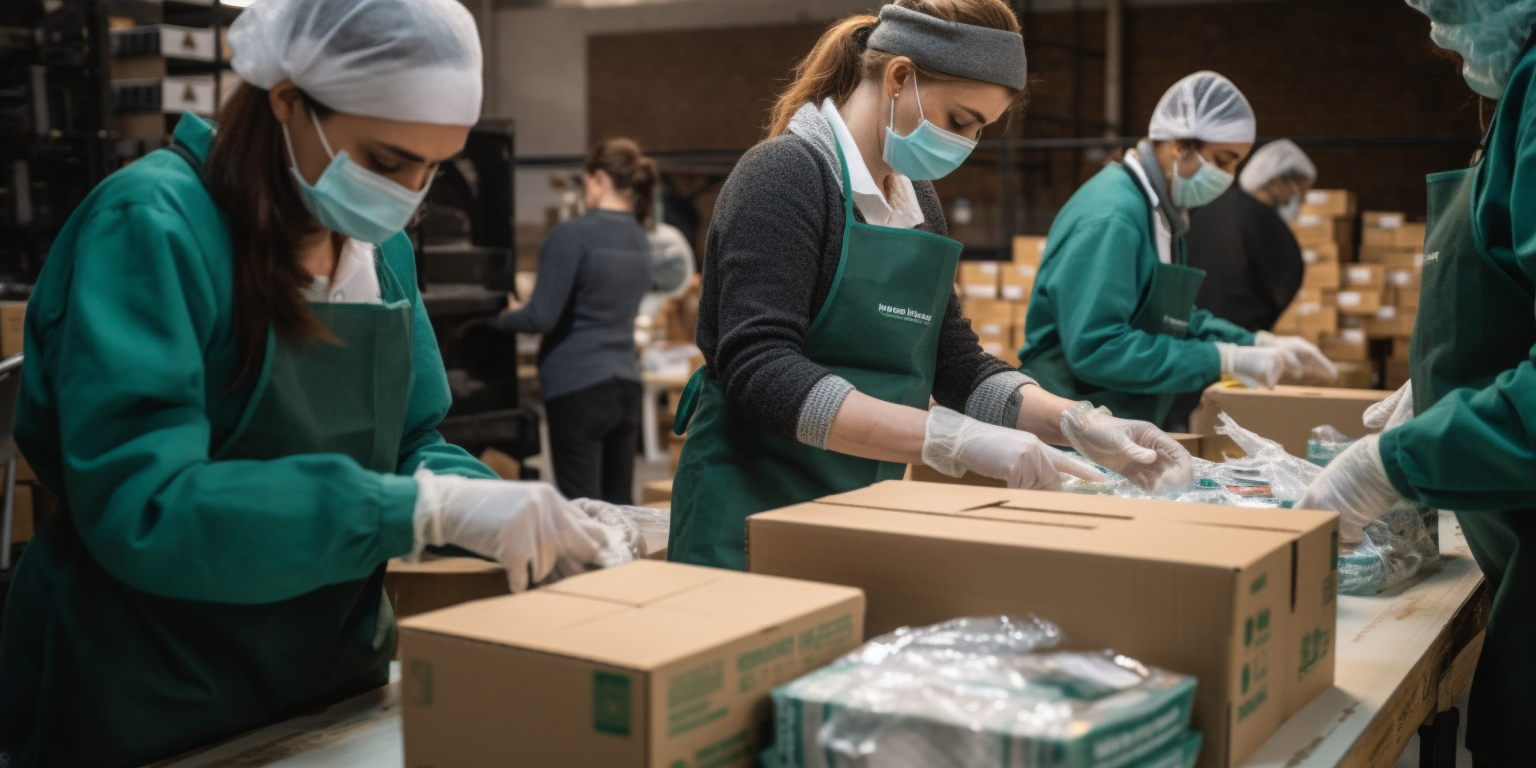
How to Build an Emergency Food Supply for Large Groups or Communities
How to Build an Emergency Food Supply for Large Groups or Communities
Picture this: a sudden emergency, natural disaster, or crisis unfolds, and you find yourself responsible for feeding a large group or even an entire community. In such critical moments, having a well-planned emergency food supply can make all the difference between chaos and order, despair and hope. So, how can you prepare to keep everyone nourished and satisfied during unpredictable times? This comprehensive guide will walk you through the steps of building an emergency food supply tailored to the needs of large groups or communities, peppered with fascinating facts and vital statistics to keep our UK readers informed.
- Understand the needs of your group or community: Before embarking on the mission of creating an emergency food supply, it's crucial to grasp the unique needs of your group or community. Consider the size of the population, dietary restrictions, and nutritional requirements for different age groups. The UK government recommends a minimum of 2,000 calories per day for adult men and 1,600 calories for adult women during emergency situations.
Did you know? In the UK, roughly 1.5% of the population follows a vegan diet, while 2.2% are vegetarian. It's vital to cater to these dietary preferences in your emergency food plan.
- Stock up on non-perishable, nutrient-dense foods: When building an emergency food supply, focus on non-perishable, nutrient-rich items with a long shelf life. Some essentials include:
- Canned goods: vegetables, fruits, beans, and meats.
- Dry goods: pasta, rice, oats, and flour.
- Protein sources: canned or vacuum-packed fish, lentils, nuts, and seeds.
- Snacks: dried fruits, granola bars, and high-energy trail mix.
If you are trying to decide which long-life ambient foods to purchase, we suggest visiting Building Your Food Stockpile: 50 Long-Life Foods To Include.
Fascinating fact: The global canned food market is projected to reach a whopping £92.3 billion by 2026!
- Hydration is key: During emergencies, access to clean drinking water may be limited. The UK government suggests storing at least 2 litres of water per person per day for drinking, cooking, and hygiene purposes. In large groups or communities, this can quickly add up, so ensure you have a sufficient water supply. For further guidance we suggest you visit How to Store Emergency Water for Long-Term Survival.
Stat attack: On average, UK households consume 349 litres of water per day. In emergency situations, this number can be reduced significantly through careful rationing.
-
Diversify your storage methods: When dealing with large groups, it's wise to diversify your storage methods to ensure food remains fresh and accessible. Vacuum-sealing, canning, and dehydration are all excellent methods for extending the shelf life of your emergency supplies.
-
Implement a rotation system: To avoid food spoilage and waste, establish a rotation system for your emergency food supply. Regularly check expiration dates, consume items nearing their expiry, and replace them with fresh stock.
-
Education and communication: A crucial aspect of managing an emergency food supply for large groups or communities is educating members about rationing, food safety, and efficient cooking methods. Clear communication and cooperation will be key to ensuring everyone stays well-fed during challenging times.
Conclusion: Building an emergency food supply for large groups or communities may seem like a daunting task, but with the right approach and a touch of creativity, it's achievable. By understanding your group's needs, stocking up on nutrient-dense, non-perishable foods, and ensuring proper storage and rotation, you can be prepared for any eventuality. As you plan for the unexpected, you're not only safeguarding the well-being of your community but also fostering a sense of unity and resilience that will endure even the most trying times.
Suggested Articles
Prepping for Emergencies with Children: A Comprehensive Guide for UK Families
How to Keep Your Family Safe, Informed, and Ready for Any Emergency Introduction Emergencies can happen at any time, ...
Emergency Food Supply for Multi-Day Power Outages: A Comprehensive Guide for UK Residents
Power outages can strike at any time, and with an increasing demand for electricity and a more volatile climate, the ...
The Role of Emergency Food in Pandemic Preparedness: Lessons from COVID-19
The COVID-19 pandemic has laid bare the vulnerabilities of our global food supply chains and has demonstrated the nee...




